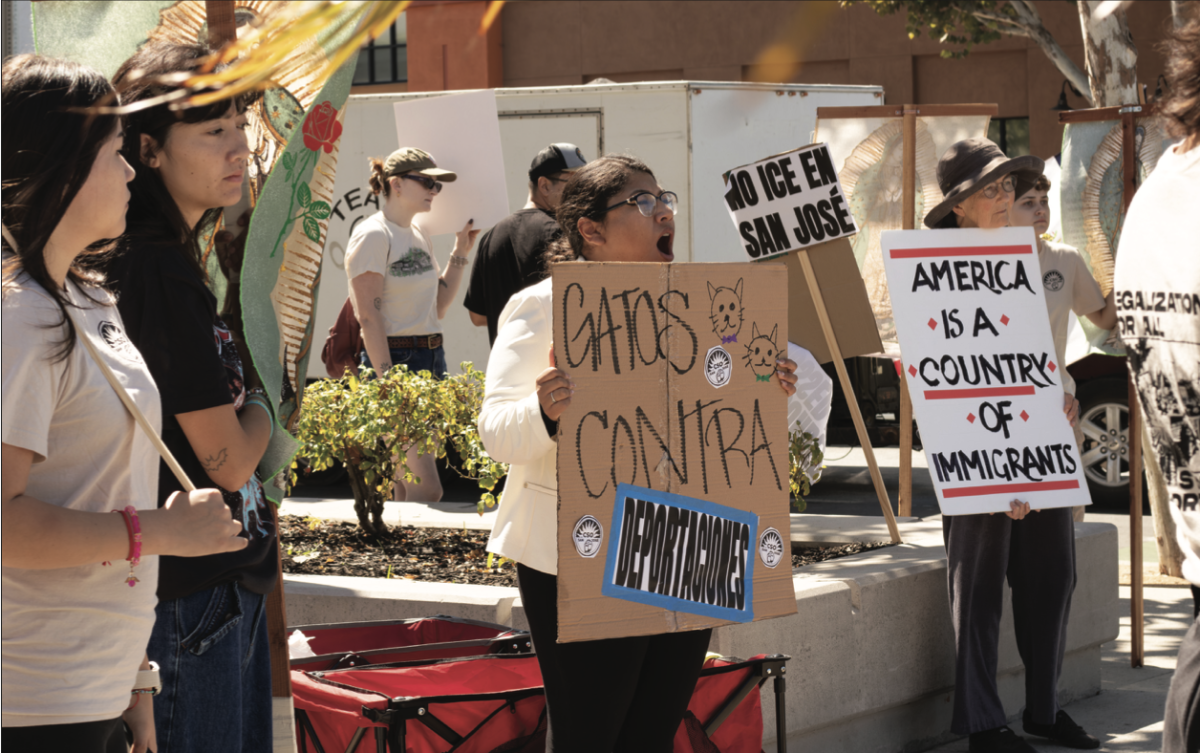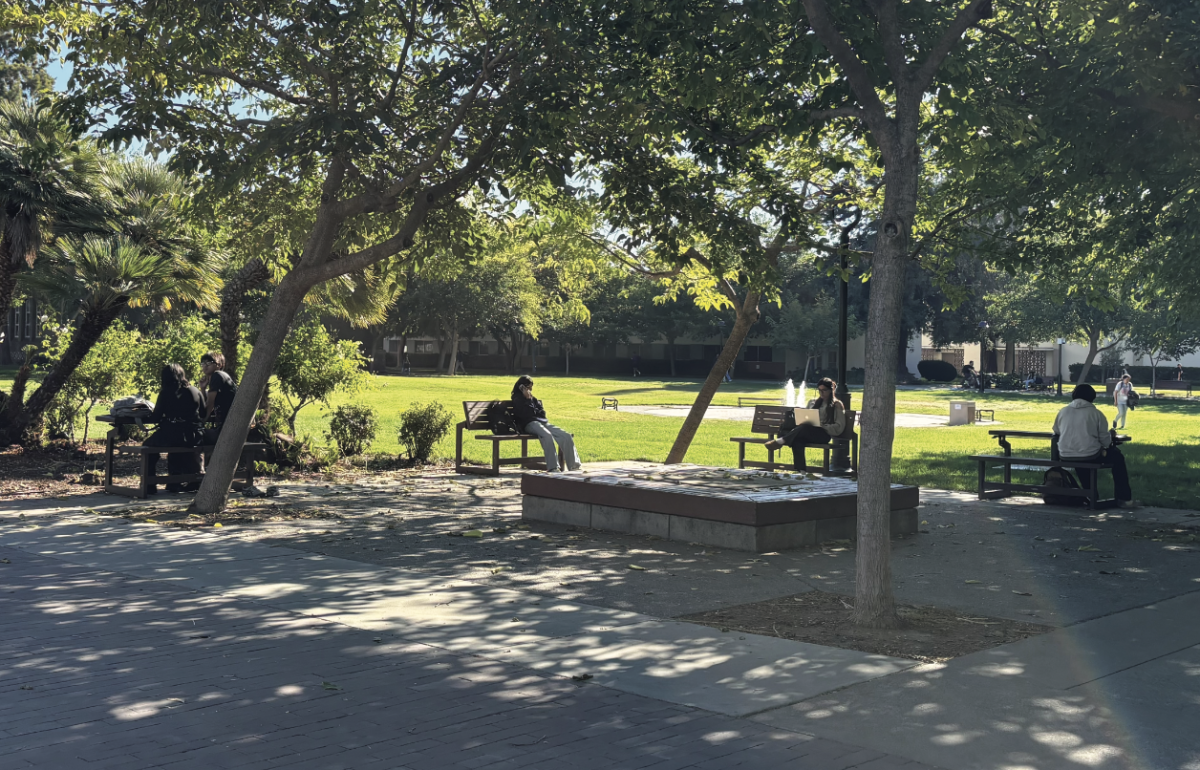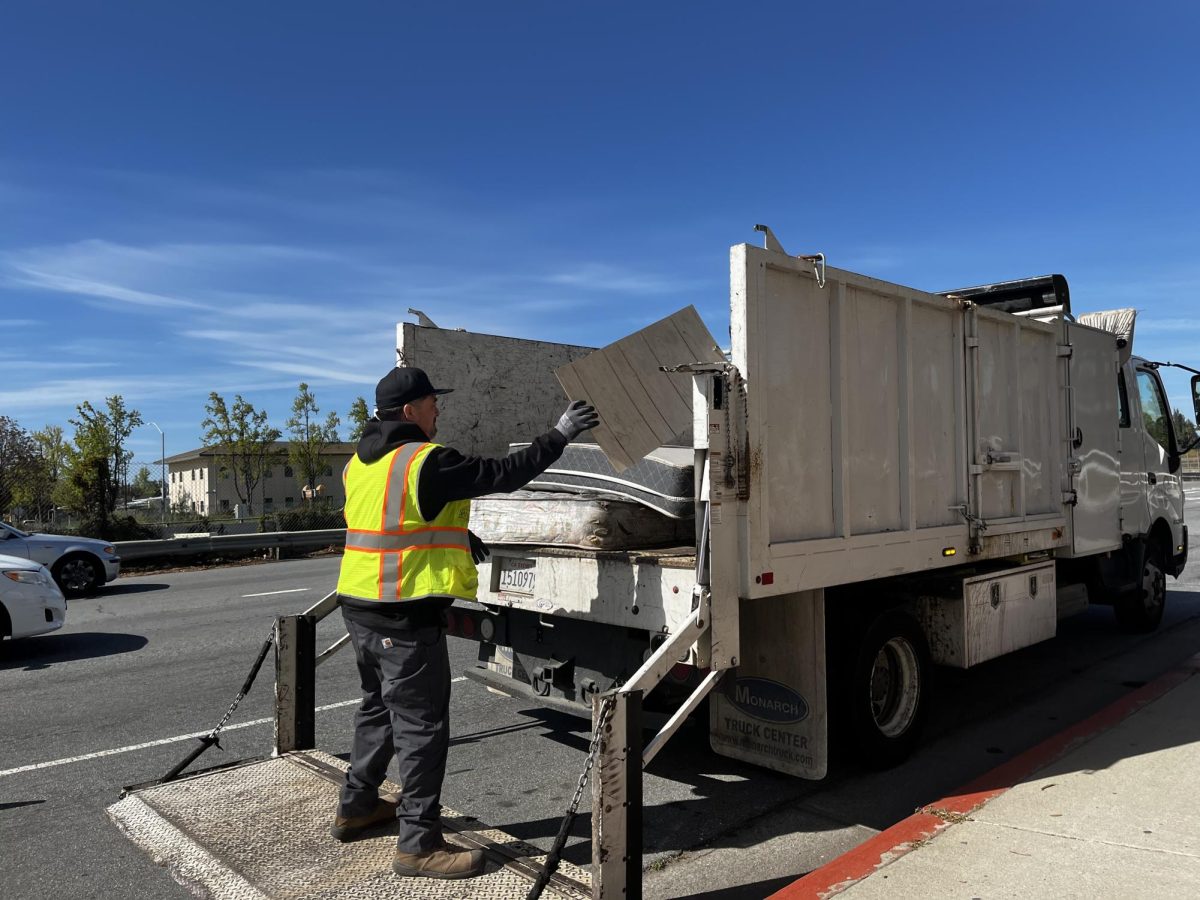UPDATE:
On Thursday, U.S. President Donald J. Trump called off plans to deploy federal agents in San Francisco, according to an article from NBC Bay Area published that same day.
However, federal agents arrived early morning at Coast Guard Island by Alameda and law enforcement faced a standoff with protesters who were picketing, according to a Thursday KQED article.
President Cynthia Teniente-Matson released a campus-wide email Thursday morning sharing resources of the limitations of U.S. Immigration and Customs Enforcement (ICE) agents in San José and on campus.
“We have no specific knowledge of any actions targeting our campus community or whether agents will be operating in the wider San José area,” Teniente-Matson wrote in the email. “Under state law, state agencies may not voluntarily admit immigration agents into non-public areas of a workplace,” the email read. “Moreover, the University Police Department (UPD) will not participate in any immigration actions or enforcement on campus.”
In San José, the Rapid Response Network in Santa Clara County confirmed two Customs and Border Protection agents were seen inside the Hall of Justice in the afternoon, according to an Instagram post from the network.
The agents left without documents and did not detain anyone, according to the same post.
San José Mayor Matt Mahan held a news conference alongside city and South Bay government officials in support of the immigrant community at Amigos de Guadalupe center, according to a Thursday San José Spotlight article.
Mahan said that he hopes the president’s decision to call off the deployment remains and that the city is committed to its sanctuary laws, according to the same article.
The Spartan Daily will continue updating this article as new information is provided.
______________________________________
Federal agents associated with the U.S. Immigration and Customs Enforcement are reportedly setting foot at the Coast Guard Island Base in Alameda on Thursday, according to an unnamed source reported by the San Francisco Chronicle on Wednesday.
This comes after President Donald J. Trump shared his plans to deploy the National Guard into San Francisco during an interview with Fox News Anchor Maria Bartiromo on Oct. 19, according to a transcript provided by the website Rollcall.
Michelle Smith McDonald, senior director of media relations at San José State, said that at the moment, there are no plans for Border Patrol or Immigration and Customs Enforcement (ICE) agents to operate within the San José State Campus.
“The University Police Department (UPD) will comply fully with Senate Bill 98 (SB 98), a California law requiring schools… to notify the campus community whenever immigration enforcement activity occurs on campus,” Smith McDonald said.
Senate Bill 98, approved by Governor Gavin Newsom on Sept. 20, 2025, acts as a protection and prevention towards immigration enforcement from entering school campuses without a judicial warrant, according to the California Legislative Information website.
SB98 is approved to take effect immediately, according to the same website.
Heather French, associate vice president and dean of students, said ICE needs to provide identification and the University Police Department (UPD) will be notified ahead of time.
“SJSU takes this very seriously and, in accordance with FERPA, does not share students’ immigration status with any law enforcement agencies unless mandated by a legally binding directive such as a subpoena,” French said.
The Family Education Rights and Privacy Act (FERPA), signed into law on Aug. 21, 1974, protects the privacy of students’ personal and educational records, meaning only students and parents have the right to access and control their own information, keeping the information confidential, according to the U.S. Department of Education.
French said rapid response information is also provided by the City of San José and on campus.
“Off-campus the rules of law and ICE may apply more directly, but the ‘red cards’ provide an overview of your rights and sample language that can be used if students are communicating directly with ICE,” French said.
The red cards French referred to are a part of Diversity, Equity and Inclusion resources offered by SJSU, provided by the Immigrant Legal Resource Center (ILRC), according to the Campus Resources website.
The Immigrant Legal Resource Center red cards provide examples of how to exercise First Amendment rights and federal protections under the U.S. Constitution, with the cards printed in small sizes and in multiple languages, according to the same website.
Other DEI resources provided include information through UndocuSpartan Student Resource Center, a free service that provides legal services to all California State University (CSU) students, recent alumni, employees and immediate family members, according to the UndocuSpartan website.
Steffi Puerto, an Oakland resident, said she would like for more CSU campuses to offer Deferred Action for Childhood Arrivals (DACA) and international students more resources and support beyond simple statements.
“I’d like for the universities to take into account how dangerous and scary this is for their community and offer online classes for students who don’t feel comfortable leaving their home, know your right workshops, legal advice and offer support groups for people to express how emotionally challenging this is,” Puerto said.
The official CSU website includes resources for undocumented, international and AB 540 eligible students, with campus support links, resources and guides and legal support services, according to the CSU website.
AB540, expanded by SB68, is a California law that allows eligible T and U visa holders, U.S. citizens, and lawful immigrant students to be exempt from paying certain tuition fees at California public colleges and universities, typically qualified for T and U visa holders, according to the Immigrants Rising website.
T and U visas are for nonimmigrants who are victims of human trafficking and other crimes, according to the U.S. Citizenship and Immigration Services website.
Ashley Guerrero, Mayfair coordinator for Jóvenes Activos at SOMOS Mayfair, said communities can help immigrant and undocumented citizens by simply showing up for neighbors and the community.
“Some more lessons learned from (Los Angeles) was how important it is to set up mutual aid to support families who may not be able to work, to provide money, groceries, supplies for children and safe passages to school,” Guerrero said.
SOMOS Mayfair is a community-led organization with the mission to uplift communities and address systemic inequities, according to the SOMOS Mayfair website.
Jóvenes Activos is a youth-led program as a part of SOMOS Mayfair, encouraging leadership and community involvement through workshops, events and traditional organization, according to the SOMOS Mayfair website.
The Alameda County Public Defender website includes a hotline for recent sightings of ICE agents, with further legal services to aid those at risk or in fear, according to the ACPD website.
The Alameda County Immigration Legal Education Partnership announced its hotline service will remain active throughout the weekend to ensure safety measures are being properly taken, according to an ACILEP Instagram post made Wednesday night.
Guerrero said it’s important now more than ever for nonprofit leaders and CSU campuses to help protect their communities.
“Families need to be prepared, folks need to have the rapid response network saved as a contact and we need to organize and foot patrol to keep our most vulnerable communities protected,” Guerrero said.
More information mentioned by the Alameda County Public Defender affirmed that families affected by any Department of Homeland Security-related agents’ presence in the Bay Area should have a prepared plan in case of emergencies, according to the Alameda County Public Defender website.
The San José Peace & Justice Center scheduled an emergency rally for Thursday, Oct. 23, at San José City Hall at 5pm, according to its Instagram.
The ILRC’s step-by-step family preparedness plan recommended a verbal agreement with children and other family members, considering guardianship, as well as a Caregiver’s Authorization Affidavit (CAA), according to an ILRC family plan article.
“SJSU as a whole is working to support our community members who may fear ICE activity by providing some protections, privacy and legal support,” French said. “However, the protections are not absolute, especially in off-campus contexts, so students should equip themselves with information about their rights and resources.”






































